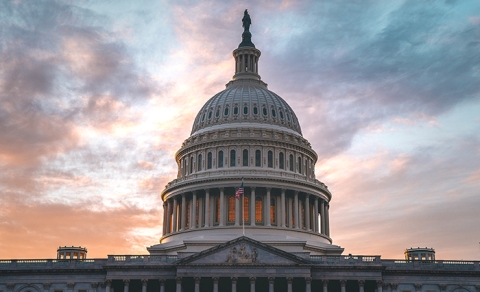TSNN Exclusive: ECA Shares Post-Election Analysis and Outlines Tax Agenda for 2025

Whether you are celebrating the results of the U.S. election or not, the incoming administration and the governing dynamics of the 118th Congress are certain to have an impact on the trade show and business events industry in 2025 and beyond.
As the Exhibitions & Conferences Alliance (ECA) works to advocate for initiatives that enhance the event industry’s growth and resilience to ensure it remains a vital component of the economy in the coming years, the organization has been closely monitoring the implications of the election, said ECA Vice President Tommy Goodwin.
“[The] decisive victory by President-elect Trump, coupled with Republicans capturing control of the Senate and House of Representatives, allows ECA to understand the implications of the election on the industry in 2025,” Goodwin said.
What should business event professionals keep on their radar? In an exclusive interview with TSNN, Goodwin shared an overview of some of the opportunities and challenges that lie ahead for ECA in 2025.
Tax reform
With many provisions of the 2017 Tax Cuts and Jobs Act set to expire on December 31, 2025, tax legislation will be front and center on Capitol Hill next year.
“With Republicans controlling the House, Senate, and White House, tax law changes will be considered quickly under ‘budget reconciliation’ rules, which allows the Senate to bypass the 60-vote filibuster,” he explained. “The incoming Trump administration and leaders on Capitol Hill would like to address tax reform within the first 100 days.”
ECA’s tax priorities for 2025 include:
- Corporate tax rates: ECA opposes any increase in the federal corporate tax rate since rate increases not only impact the industry’s small businesses, but they also directly impact the number of exhibitors and attendees at trade shows. This negatively impacts booth building, venue staffing levels, contractor hiring, union labor hours, and more.
- Private equity tax treatment: ECA also opposes changes to the tax treatment of private equity profits and interest deductibility to prevent against cutting off a vital source of industry investment. Case in point: Clarion Events’ recent acquisition of Eaton Hall and PE firm Truelink Capital’s purchase of GES.
- Association taxation: In addition, ECA opposes any changes to the tax-exempt status of not-for-profit associations or their conferences and trade shows. According to the American Society of Association Executives, associations host more than 272,000 events annually that attract nearly 52 million participants and generate $42 billion in spending nationwide.
- 529 expense expansion: ECA supports tax law changes that would allow 529 college savings to also pay for post-secondary credentials like IAEE’s Certified in Exhibition Management designation and PCMA’s Digital Event Strategist certification. This policy change would transform 529 plans from college savings plans to career savings plans and help the industry attract and train its next-generation workforce.
International travel

While progress has been made on visa wait times in 2024, a second Trump administration could inject uncertainly into the industry’s ongoing efforts to get all international exhibitors and attendees back to events in the U.S., Goodwin warned.
“ECA is hopeful that the Trump administration will finish the job of getting visa wait times down to acceptable levels at all U.S. embassies and consulates around the world,” he said. “That said, visa wait times ballooned during the early days of the pandemic in 2020, and the first Trump administration issued executive orders that restricted international travel from certain countries and suspended certain classes of visas.”
Sustainability
With Trump promising to pursue a deregulation agenda, climate-related legislating will likely pass from Washington, DC to state capitals and other large cities across the country. Goodwin cautioned that the ECA and the industry will need to be particularly aware of new efforts in Democratic-controlled states with a large industry presence, including California, New York, and Illinois, among others.
“The adoption of different rules of the road in different markets could result in increased compliance complexity and costs for various industry stakeholders, including show organizers, general service contractors, and venues,” he said.
Future workforce
Both of ECA’s next-generation workforce policy priorities, 529 plan expense expansion (mentioned above) and Pell Grant repurposing for high-quality skills training have broad bipartisan support and may benefit from the election results, Goodwin said.
“In his first term, President-elect Trump prioritized expanding career opportunities for those without a four-year college degree,” he explained. “Should that focus continue into his new administration, the ECA-supported Pell Grant expansion would likely receive strong support from the White House and Capitol Hill.”
ECA’s full 2025 public policy agenda will be released in early 2025.
Want to know more? Listen to our recent podcast with Goodwin here.
Don’t miss any event-related news: Sign up for our weekly e-newsletter HERE, listen to our latest podcast HERE and engage with us on Twitter, Facebook and LinkedIn!


Add new comment